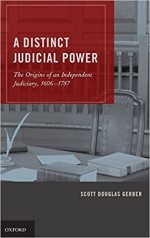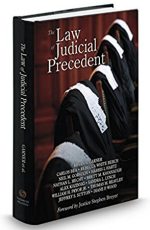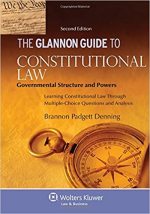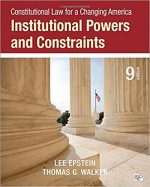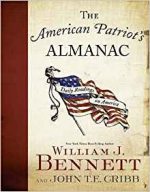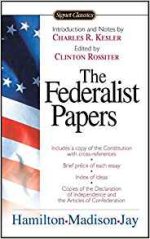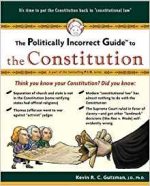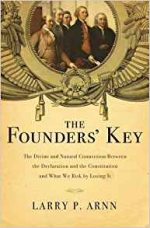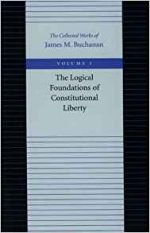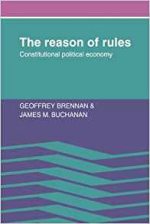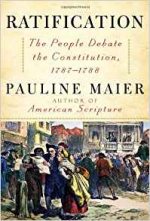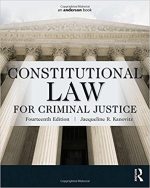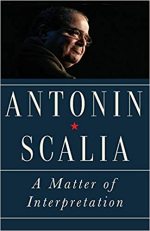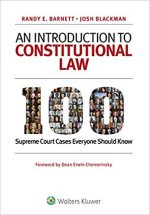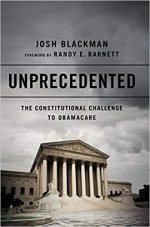The United States Constitution
Article. III.
Section. 1. (Judicial Powers)
The judicial Power of the United States shall be vested in one supreme Court, and in such inferior Courts as the Congress may from time to time ordain and establish. The Judges, both of the supreme and inferior Courts, shall hold their Offices during good Behaviour, and shall, at stated Times, receive for their Services a Compensation, which shall not be diminished during their Continuance in Office.
Stephen Breyer – The Supreme Court During Wartime
More
- Supreme Court of the United States
- SCOTUSblog
- The Constitution of the United States: A Transcription – The National Archives
- United States Constitution: Texts, Commentaries, Historical Texts and Judicial Decisions – Law Library of Congress
- CRS Annotated Constitution
- The Constitution of the United States of America: Analysis and Interpretation – FDsys
- Constitution of the United States of America: Analysis and Interpretation, Govinfo.gov
- Section 1: Federal courts – Wikipedia
- Section 1. The judicial Power of the United States – Findlaw
- “The Highest Court of the Land: There just so happens to be a court even higher than the U.S Supreme Court: a basketball court in the building itself.” Atlas Obscura
- “How to Attend Oral Arguments at the Supreme Court,” by Josh Blackman
- “The Antifederalists Were Eerily Prophetic,” by Gary Galles
- “Recommendation for New U.S. Circuit and District Court Judgeships by the Judicial Conference of the United States (117th Congress),” CRS Insight IN11639 (6-page PDF
 )
) - “The ‘Shadow Docket’: The Supreme Court’s Non-Merits Orders,” CRS Legal Sidebar LSB10637 (8-page PDF
 )
) - “Congressional Control over the Supreme Court,” CRS Report R47382 (56-page PDF
 )
)

A free download of our Pocket Constitution is available on Scribd.
A Distinct Judicial Power: The Origins of an Independent Judiciary, 1606-1787
Law of Judicial Precedent
The Glannon Guide to Constitutional Law: Governmental Structure and Powers
Constitutional Law for a Changing America: Institutional Powers and Constraints
The Five Thousand Year Leap: 28 Great Ideas That Changed the World
The American Patriot’s Almanac: Daily Readings on America
Pocket Constitution
The Federalist Papers
The Politically Incorrect Guide to the Constitution
The Ideological Origins of the American Revolution
The Essential American: 25 Documents and Speeches Every American Should Own
The Founders’ Key: The Divine and Natural Connection Between the Declaration and the Constitution and What We Risk by Losing It
Logical Foundations of Constitutional Liberty
The Reason of Rules: Constitutional Political Economy
Ratification: The People Debate the Constitution, 1787-1788
Constitutional Law for Criminal Justice
A Matter of Interpretation: Federal Courts and the Law – New Edition
An Introduction to Constitutional Law: 100 Supreme Court Cases Everyone Should Know
Unprecedented: The Constitutional Challenge to Obamacare
A Republic, If You Can Keep It
For more than 40 years, TheCapitol.Net and its predecessor, Congressional Quarterly Executive Conferences, have been teaching professionals from government, military, business, and NGOs about the dynamics and operations of the legislative and executive branches and how to work with them.
Our custom on-site and online training, publications, and audio courses include congressional operations, legislative and budget process, communication and advocacy, media and public relations, testifying before Congress, research skills, legislative drafting, critical thinking and writing, and more.
TheCapitol.Net is on the GSA Schedule, MAS, for custom on-site and online training. GSA Contract GS02F0192X
TheCapitol.Net is now owned by the Sunwater Institute.
Teaching how Washington and Congress work ™

